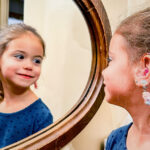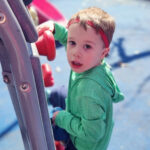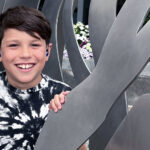How I hear you: Isabelle’s cochlear implant story
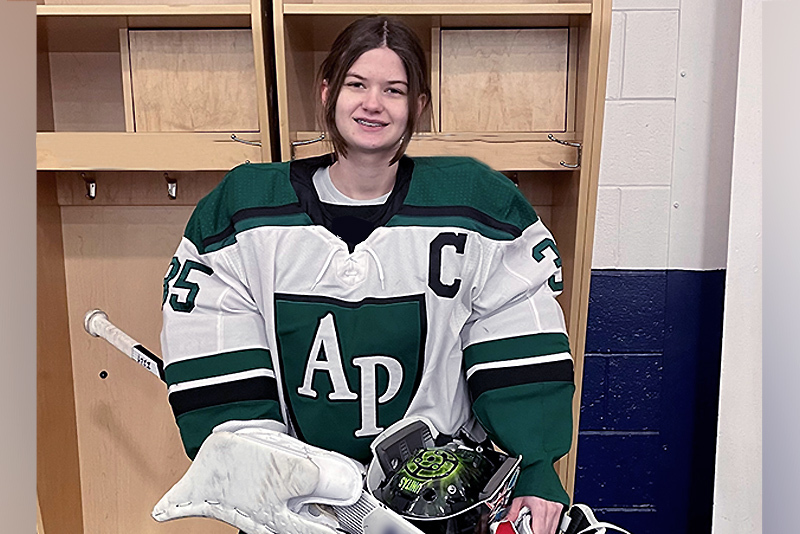
Isabelle is a thriving AP student, hockey player, and online gamer who listens to music and communicates with the help of cochlear implants. When people ask about the devices behind her ears, she responds, “They’re my ears. That’s how I hear you.”
Fourteen years ago, when Vicki and Jason learned one of their newborn twins had hearing loss, the self-described type-A parents looked ahead with uncertainty. “In the beginning, you have no idea what the future will hold for your child,” says Vicki.
The future began to take shape when they sought care at Boston Children’s Hospital. As Isabelle’s condition has evolved over the years, clinical expertise and services through the Department of Otolaryngology and Communication Enhancement have helped her communicate through a variety of methods. And her parents have found answers to many of their questions about how to help their daughter thrive.
“They showed so much compassion for what we were going through as parents,” says Vicki. “We knew we had come to the right place.”
Progressive hearing loss and a sledding accident
When she was 1, Isabelle was diagnosed with enlarged vestibular aqueducts (EVA), a malformation of the inner ear that often leads to progressive hearing loss. By age 3, she’d lost all hearing in her left ear but could still hear with a hearing aid out of her right ear. Then a seemingly minor accident when she was 5 took away the hearing in that ear as well.
The family had just returned home from a local sledding hill. Isabelle and her sister had already removed their helmets when they decided to take one more run down a small hill next to the house. Before their parents could stop them, Isabelle slipped off the sled and hit her head. “She knew right away, and we knew from her face, that she could not hear us at all,” remembers Vicki.
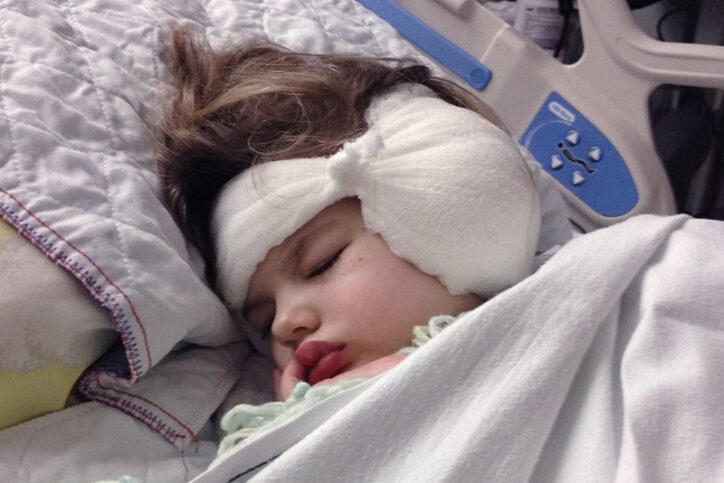
Despite emergency treatment at Boston Children’s, the hearing loss was complete and irreversible. However, Vicki and Jason had already thoroughly researched cochlear implants, preparing for the day when Isabelle might lose her hearing. They’d discussed the pros and cons with the team at Boston Children’s and made sure Isabelle spent time with other children with cochlear implants so the concept wouldn’t be new to her.
Four weeks after her accident, Dr. Greg Licameli of the Cochlear Implant Program performed cochlear implant surgery on both of Isabelle’s ears.
Cochlear implants, a new way of hearing
Four weeks after the procedure, Dr. Jennifer Harris activated Isabelle’s speech processors. This allowed them to transmit sounds to receivers implanted under her skin and then to electrodes located in her inner ears. The electrodes stimulated her hearing nerve, doing the work that her damaged ears could no longer do. Gauging Isabelle’s responses to various audio signals, Dr. Harris made sure she could “hear” the sensations at a comfortable level.
“Right from the very beginning, they told us this would be a whole new way of hearing,” says Vicki. “Izzy’s brain had to adapt, and they had no way of knowing how long that would take.” Vicki and Jason prepared themselves for a slow process. But their daughter surprised them.
Working with speech pathologist Denise Fournier-Eng, Isabelle started deciphering words within a week. Maybe all the early intervention classes and exposure to language Vicki and Jason had insisted on over the years helped. Maybe it was pure determination on Isabelle’s part. Whatever it took, her parents were delighted and proud that she started recognizing spoken language so quickly.
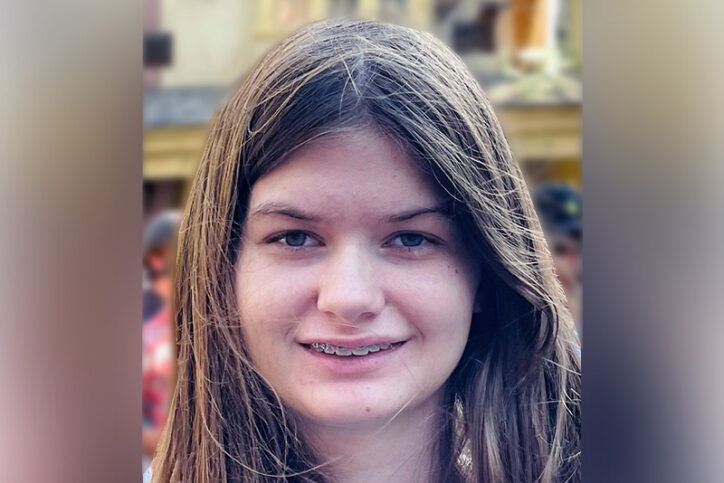
Adjusting to the social and emotional impact of wearing devices on her head was another story. Dr. Terrell Clark, attending psychologist in the Deaf and Hard of Hearing Program, helped Isabelle cope with her implants in those early years, and the reactions of her peers. Dr. Clark has also helped Vicki and Jason understand their daughter’s experience through each stage of her development.
Access to the hearing world
Nine years after Isabelle’s surgery, no one in the family looks back with regret. “The cochlear implants give her access to the hearing world,” says Vicki. With the implants, Isabelle heard rain for the first time and fell in love with music. She attends a mainstream school where she’s achieved honor roll status. When she plays ice hockey on her school’s team, she wears a helmet that her father customized to protect her head and her cochlear implants.
Looking back on the early days of uncertainty, Vicki muses, “Boston Children’s has been like another family throughout this process. At first, we didn’t know if Isabelle would be ‘all right.’ She is, of course, because of her unique skills and personality, but also because of the support of Boston Children’s.”
Learn more about the Department of Otolaryngology and Communication Enhancement, Cochlear Implant Program, and Deaf and Hard of Hearing Program.
Related Posts :
-

A different kind of hearing: Caleb’s cochlear implant
Caleb recently told his mother, “I think I’m going to write my own stories.” This news didn’t surprise ...
-

‘Empowered to be there for Teagan’: New parents learn about hearing loss
Teagan O’Brien is a bright, spunky 4-year-old who loves reading, dancing, and playing outdoors. Her parents, Kim and Donnie, ...
-

Learning to speak with the help of a bone-anchored hearing system: Owen’s story
Why does 4-year-old Owen love Ghost Spider? For one thing, her suit has purple highlights. For another, her hand forms ...
-

How hearing aids opened up a world of sound for Harry
Maybe it’s unusual to bring a musical instrument to an audiology appointment, but that didn’t stop Harry King. ...



